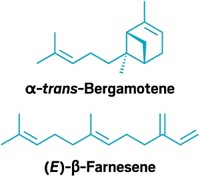Advertisement
Grab your lab coat. Let's get started
Welcome!
Welcome!
Create an account below to get 6 C&EN articles per month, receive newsletters and more - all free.
It seems this is your first time logging in online. Please enter the following information to continue.
As an ACS member you automatically get access to this site. All we need is few more details to create your reading experience.
Not you? Sign in with a different account.
Not you? Sign in with a different account.
ERROR 1
ERROR 1
ERROR 2
ERROR 2
ERROR 2
ERROR 2
ERROR 2
Password and Confirm password must match.
If you have an ACS member number, please enter it here so we can link this account to your membership. (optional)
ERROR 2
ACS values your privacy. By submitting your information, you are gaining access to C&EN and subscribing to our weekly newsletter. We use the information you provide to make your reading experience better, and we will never sell your data to third party members.
Analytical Chemistry
Software Enables Speedier Metabolomics
Program improves metabolite profiling by permitting an unlimited number of sample comparisons simultaneously
by Stu Borman
January 10, 2011
| A version of this story appeared in
Volume 89, Issue 2
Scientists at Scripps Research Institute have developed a software program that improves the efficiency of mass spectrometry-based metabolite profiling by making it possible to carry out analyses in a multiplex manner. Software currently available for metabolomics—the study of the chemical end products of cellular processes—is capable of comparing only two sample groups at a time to determine metabolite differences, such as samples from an organism exposed to different conditions. The new program, metaXCMS (metlin.scripps.edu/metaxcms), developed by Scripps’s Ralf Tautenhahn, Gary J. Patti, and Gary Siuzdak, along with coworkers, enables comparisons of an unlimited number of sample classes simultaneously (Anal. Chem., DOI: 10.1021/ac102980g). This type of second-order analysis could speed up metabolomics data processing considerably, the researchers report. They demonstrated the software’s capabilities by analyzing metabolites in mice exposed to pain from three different causes and showing that histamine levels change similarly in each case relative to histamine levels in pain-free mice. The team also notes that metaXCMS’s multiplex capabilities will enable researchers to identify biologically relevant differences in data sets prior to confirming metabolite structures, which is a time-consuming step in metabolomics studies.




Join the conversation
Contact the reporter
Submit a Letter to the Editor for publication
Engage with us on Twitter